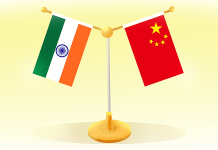
Chief Minister M.K. Stalin has ignited a fresh political and legal offensive to exempt Tamil Nadu from the National Eligibility cum Entrance Test (NEET), as the state government convened an all-party, all-MLA meeting to discuss its next legal and constitutional steps.
In This Article:
Calling the Central Government’s rejection of Tamil Nadu’s anti-NEET Bill a “dark chapter in Indian federalism,” Stalin said that the time has come to escalate the state’s demand through coordinated legal measures, public mobilization, and constitutional channels.
Key Developments from April 9 NEET Exemption Meeting
- MK Stalin chaired a high-level meeting with all MLAs and major political party leaders.
- AIADMK boycotted the meeting, accusing it of being politically motivated.
- DMK and its allies resolved to intensify pressure on the Centre through judicial and legislative means.
- The anti-NEET Bill, passed twice by the Tamil Nadu Assembly, remains rejected by the President.
- A legal advisory team has been tasked to chart the next course of action.
Why Tamil Nadu Is Opposing NEET – A Recap
Tamil Nadu has long argued that the one-size-fits-all NEET exam undermines social justice and disadvantages rural, underprivileged, and state-board students.
Tamil Nadu’s Standpoint
- The state traditionally admits students to medical colleges based on Class 12 scores.
- NEET, according to critics, favours urban and CBSE students.
- Several tragic student suicides have been linked to NEET-related stress, intensifying opposition.
What the Anti-NEET Bill States
- The Tamil Nadu Admission to Undergraduate Medical Courses Bill, 2021 seeks to permanently exempt the state from NEET.
- It was passed in the Assembly in 2021 and again in 2022, but rejected by the Governor and eventually by the President, following the Centre’s recommendation.
“An Attack on State Rights” – Stalin Slams Centre
At the meeting, CM Stalin said:
“The Centre’s refusal to respect the state legislature’s democratic will is a direct blow to federalism. This is a grave assault on state rights and the future of our youth.”
Stalin further emphasized that this is not just a policy issue, but a human rights crisis, with NEET disproportionately affecting students from rural, SC/ST, and backward class backgrounds.
Opposition Boycott and Political Reactions
AIADMK and BJP Distance Themselves
- The AIADMK, led by Edappadi Palaniswami, boycotted the meeting, claiming that the DMK government was using the NEET issue to divert attention from governance failures.
- TN BJP chief K. Annamalai reiterated that NEET is a national standard and accused the DMK of politicizing education.
DMK, Congress, VCK, MDMK Present a United Front
- The Congress, Viduthalai Chiruthaigal Katchi (VCK), and other DMK allies supported the anti-NEET stance, affirming that education policy must be sensitive to regional realities.
- VCK leader Thol. Thirumavalavan stated, “This is a matter of social justice. NEET must go.”
Legal Path Ahead – What’s Next for Tamil Nadu?
Stalin announced the formation of a high-powered legal committee that will explore:
- Filing a fresh writ petition in the Supreme Court.
- Exploring constitutional avenues under Article 131 (Centre-state disputes).
- Coordinating with other opposition-led states that share similar concerns about NEET.
Stalin also plans to write to opposition Chief Ministers and rekindle the anti-NEET federal alliance, similar to earlier efforts with Kerala and West Bengal.
Student Voices and Ground-Level Sentiment
Thousands of students across Tamil Nadu, particularly from rural and marginalized communities, have come out in support of Stalin’s renewed push.
Key Concerns Among Students and Parents
- NEET leads to economic burden due to coaching institutes.
- Language barriers disadvantage Tamil-medium students.
- Disproportionate pass rates between CBSE and state board students.
A Long Road Ahead – Will the Centre Relent?
The Central Government remains firm in its support for NEET, stating it ensures merit and a uniform admission system. However, with elections around the corner and rising opposition unity, Tamil Nadu’s aggressive stance could reignite national debate on the centralization of education policy.
While it is unlikely that the Centre will reverse its decision anytime soon, Tamil Nadu’s renewed campaign, backed by a broader alliance and strategic litigation, might increase political and public pressure.
Moving Forward – A Fight That’s Far From Over
Chief Minister M.K. Stalin’s renewed legal and political battle against NEET signals a high-stakes confrontation between state autonomy and central authority. While the outcome remains uncertain, the Tamil Nadu government is determined to fight what it calls a systemic injustice till the very end.
As the CM put it:
“The battle is not just for exemption; it is for equity, social justice, and our constitutional rights.”
By – Nikita



